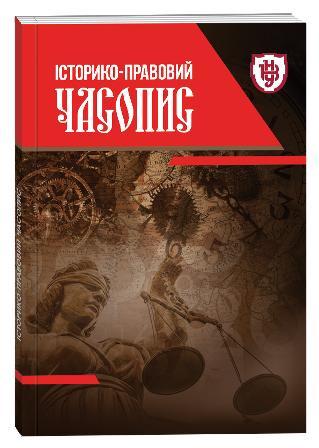PROFESSIONAL SELF-GOVERNMENT OF MEDIATORS: BETWEEN SOCIAL NEED AND LEGAL POSSIBILITY OF EXISTENCE
DOI:
https://doi.org/10.32782/2409-4544/2021-2/17Keywords:
mediator, mediation, National Register of Mediators, professional self-government of mediatorsAbstract
The issue of functioning and professionalization of the mediator profession is nowadays one of the most important legal and social problems. One of the legal problems is the establishment of the National Register of Mediators (Krajowy Rejestr Mediatorów, KRM). Work is currently underway on a project of the Ministry of Justice entitled “Promotion of alternative dispute resolution methods by increasing the competences of mediators, establishing the National Register of Mediators (KRM) and information activities”. The National Register of Mediators is to be established by mid-2023 at the latest. Interestingly, however, there is no discussion in the public space on the possibility of establishing a professional self-government of mediators. Such a self-government could take the form of, for example, legal self-governments (attorneysat- law, advocate). On the other hand, the professional self-government of mediators would be independent of the political authority, as pursuant to Article 17 of the Constitution of the Republic of Poland, would be created by law, would represent persons practicing the profession of mediator as a profession of public trust and, most importantly, it would be the self-government, not the minister, that would oversee the proper performance of the profession within the limits of the public interest and for its protection. The authority of the self-government would be related to the professionalism of the mediator’s profession and would apply to the disciplinary liability of the mediator before the competent self-government body (disciplinary court) for his unethical actions.
References
Konstytucja Rzeczpospolitej Polskiej z dnia 2 kwietnia 1997 r., Dz. U z 1997 r. № 78, poz. 483 z późn. zm.
Przylepa-Lewak A. Profesjonalizacja zawodu mediatora. Studia Prawnicze i Administracyjne. 2017. 21 (3). S. 59.
Nordhelle G. Mediacja. Sztuka rozwiązywania konfliktów. Gdańsk, 2010. S. 27.
Kodeks Postępowania Cywilnego, t.j. Dz. U. z 2019 r. poz. 1460, z późn. zm.
Про медіацію : Закон України від 16 листопада 2021 р. URL: http://w1.c1.rada.gov.ua/pls/zweb2/webproc4_1?pf3511=68877 (дата звернення: 20.11.2021).
Верховна Рада прийняла Закон «Про медіацію». URL: https://uba.ua/ukr/news/8772/
Projekt pn. “Upowszechnienie alternatywnych metod rozwiązywania sporów poprzez podniesienie kompetencji mediatorów, utworzenie Krajowego Rejestru Mediatorów (KRM) oraz działania informacyjne”. URL: https://www.gov.pl/web/sprawiedliwosc/projekt-krm2
Czyżowska D. Konflikt, [w:] Słownik psychologii / pod red. J. Siuta. Kraków, 2006. S. 126–127.
Hamer H. Psychologia społeczna. Teoria i praktyka. Warszawa, 2005. S. 277.
Сергєєва С., Романадзе Л. Закон змінить вектор розвитку медіації в Україні. URL: https://yur-gazeta.com/dumka-eksperta/zakon-zminit-vektor-rozvitku-mediaciyi-v-ukrayini.html
Myślińska M. Mediator w polskim porządku prawnym. Warszawa, 2018. S. 71 i n.
Dane statystyczne dotyczące mediacji. Ministerstwo Sprawiedliwości. URL: https://www.gov.pl/web/sprawiedliwosc/dane-statystyczne-dotyczace-mediacji
Sędziowie pokoju. Prezydent podpisał projekt. URL: https://serwisy.gazetaprawna.pl/orzeczenia/artykuly/8285166,sedziowie-pokoju-kim-sa-czym-sie-zajmuja-jakie-wymogi.html
Kępa M., Pilipiec S. Perspektywy zawodowe studentów prawa, Lublin 2021, s. 72–73, 84 % badanych studentów Wydziału Prawa i Administracji UMCS za najbardziej prestiżowy uważa zawód sędziego.
Chojnacki S. URL: https://www.facebook.com/groups/mediacjadlawszystkich/







